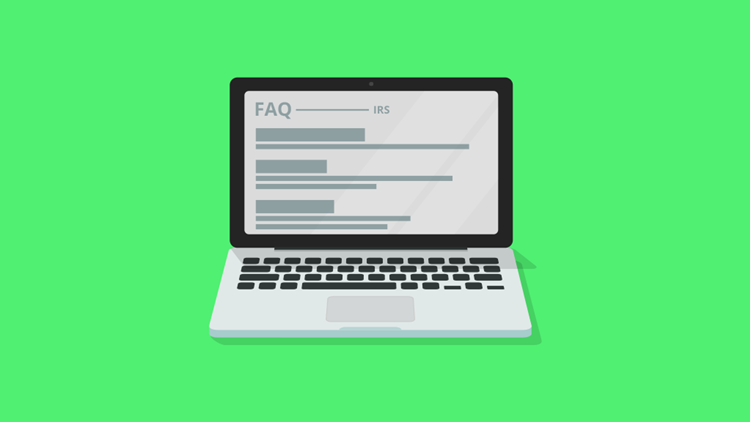
The Internal Revenue Service is pushing out a new version of its frequently asked questions (FAQs) for the 2020 Recovery Rebate Credit. The updated information is featured in Fact Sheet 2022-08, which carries the latest information pertaining to tracing payments.
While most of the information on the Fact Sheet was updated in December 2021, Question 8 under Topic F: Finding the First and Second Economic Impact Payment Amounts to Calculate the 2020 Recovery Rebate Credit is hot off the presses, being updated February 2 of this year:
QF8. Missing Economic Impact Payment: How do I request a payment trace to track my first and second Economic Impact Payments?
A8. You should only request a payment trace to track your payment if your online account shows a first or second payment was issued to you and you have not received it. Do not request a payment trace to determine if you were eligible for a payment or to confirm the amount of payment you should have received.
How the IRS processes a claim
We’ll process your claim for a missing payment in one of two ways:
- If a trace is initiated and the IRS determines that the check wasn’t cashed, the IRS will credit your account for that payment, but the IRS cannot reissue your payment. Instead, you will need to claim the 2020 RecoveryRebate Credit on your 2020 tax return if eligible.
- Note: If you are filing your 2020 tax return before your trace is complete, do not include the payment amount on line 16 or 19 of the Recovery Rebate Credit Worksheet. If you do, you may receive a notice saying your 2020 Recovery Rebate Credit was changed, but an adjustment will be made after the trace is complete and it is determined your payment has not been cashed. You will not need to take any additional action to receive the credit. If you do not request a trace on your payment, you may receive an error when claiming the 2020 Recovery Rebate Credit on your 2020 tax return. Since the payment was issued to you, you may not be eligible for any credit.
- If the check was cashed, the Treasury Department’s Bureau of the Fiscal Service will send you a claim package that includes a copy of the cashed check. Follow the instructions. The Treasury Department’s Bureau of the Fiscal Service will review your claim and the signature on the canceled check before determining whether the payment can be reversed and your Recovery Rebate Credit adjusted.
The Fact Sheet goes on to explain that taxpayers initiating a trace need to complete Form 3911, Taxpayer Statement Regarding Refund, and gives instructions on transmitting the form to the IRS.
Alternatively, they can also call the IRS at 800-919-9535 to start a trace.
Encouraging non-filers to file
Many of the FAQs updated in December concentrate on answering the questions of non-filers who fear they might miss out on the Recovery Rebate Credit.
For example, one question asks if a taxpayer didn’t qualify for a Economic Impact Payment, would they still qualify for the Recovery Rebate Credit?
They IRS’ answers with a maybe. There are changes, the IRS stresses, that could change a taxpayer’s eligibility to the good for the credit. The first and second Economic Impact Payments were based on the taxpayer’s 2018 and 2019 income tax returns. If circumstances changed in 2020, that means eligibility for the Recovery Rebate Credit could’ve changed as well.
Here are some life changes that could open the door to qualifying for the Recovery Rebate Credit for 2020:
- Income change: Your adjusted gross income went down in 2020.
- Qualifying child: You welcomed an eligible child in 2020 who was under the age of 17 at the end of 2020.
- No longer a dependent: You were no longer eligible to be claimed as a dependent on someone else’s tax return in 2020.
- Social Security number: You received a Social Security number valid for employment before the due date of your 2020 return (including extensions).
The IRS reminds that FAQs should not be relied on for official tax law in formal proceedings such as those before the Tax Court, but are meant only to transmit changes to taxpayers quickly. More information on such reliance is available from the IRS.
Visit the IRS website, IRS.gov, for more information on the Recovery Rebate Credit.
Sources: IRS provides revised answer for 2020 Recovery Rebate Credit on tracing payments; Fact Sheet 2022-08
